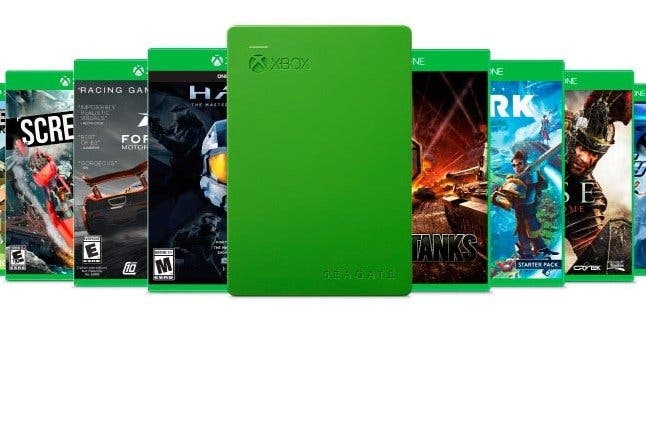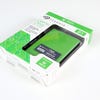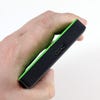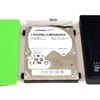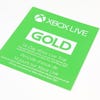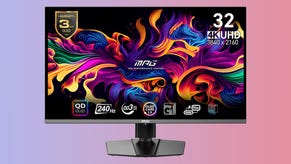Seagate 2TB Game Drive for Xbox review
Xbox branding bumps up the price of this hard drive - but not the performance.
Last year, Microsoft finally allowed users to hook up an external hard drive to the Xbox One, providing the option to boost the limited 500GB storage capacity of the internal HDD with much larger and potentially faster drives. Partnering with Seagate, an officially branded 2TB Xbox-branded 'Game Drive' is now available, validated for use with Xbox One and Xbox 360. Priced at £79 in the UK and around $100 in the US, this licensed product is anything from £15 to £19 more expensive than Seagate's own USB 2TB portable drives, so the question is whether the price premium offers users anything extra over and above its rather striking Xbox-green plastics.
To begin with, let's explain the major concern surrounding this product in a little more depth. Forget USB enclosures for a moment and let's concentrate on the drive inside: Seagate happens to produce one of the very best, most keenly-priced 2.5-inch hard drives on the market - the Samsung Momentus Spinpoint ST2000LM003 (if you're wondering, Seagate acquired Samsung's hard drive business). It's ideal for PS4 upgrades because it offers a lot of storage in a 9mm-high chassis - just the right size for the Sony console (other high capacity drives can be 12mm or higher, meaning they are not recommended). Now, this drive's power efficiency and small form-factor are such that Seagate incorporates this winning design into other 'passport'-style USB enclosures and remarkably, these expansion drives usually sell at a lower price than just buying the drive itself. In fact, the ST2000ML003 is so good that Seagate uses it in at least two other portable HDD products - not just the official Xbox drive.
Prise apart from the plastic casing of the Xbox hard drive, and you'll find exactly the same Samsung unit as the one found in the cheaper £65 Seagate STEA2000400 expansion drive. Indeed, even the USB to SATA bridge inside is the same, as is the metallic insulation shroud. The ST2000LM003 drive is also found in last year's STBX2000401 Seagate offering, the expansion upgrade we used for our cheeky PS4 2TB upgrade guide. Availability on the older version generally seems to be declining now, but Amazon often offers it for £60 when it has stock, and has done for over a year now - £5 cheaper than its replacement and £19 cheaper than the official Xbox 2TB drive.
In tests, we found that both the 2015 STEA200400 Seagate and the Xbox drive performed identically, within the margin of error. And this is not surprising really, as plastics apart, they are one and the same - to the point where the green branded cover of the official unit is fully interchangeable with its cheaper counterpart. The bottom line is this: unless you're mad-keen on the revised plastics, the price premium of the Game Drive makes very little sense.
Order the drives covered in this article from Amazon, with free shipping:
Beyond that, just how well does the official Xbox One drive - or indeed the like-for-like Seagate model - work as an upgrade? Well, in theory, we should expect to see to see an uplift in performance in terms of installation, loading times and performance. Despite the fact that the ST2000LM003 drive is a 5400rpm drive - just like the internal unit - data is more densely packed onto the platters - meaning that the same drive rotation speed reads in more data. On top of that, the Xbox One internal drive runs the operating system and saves your footage onto the drive simultaneously.
However, the reality is that there's no decrease the time taken to install your games to the external drive as opposed to installing them directly to the internal storage. The difference in loading times across a range of games is also fairly minimal - a few seconds are shaved off boot and level load times here and there, but there are no revelatory improvements that'll see you gaming much sooner than you would by running off the internal 500GB drive. In fact, the weight of the evidence points towards a capped level of throughput from virtually any device you care to attach to the Xbox, the difference coming from seek times - the time it takes for the drive to move from one file to the next. Tests have shown that 7200rpm units, hybrid SSHDs and SSDs are faster here, but with the suspected throughput cap in place, the gains from these expensive drives is limited - something we previously explored in our Xbox One hard drive upgrade guide.
Seek times can potentially have a positive impact on texture streaming though. Here, faster drives can make a difference, but only on a handful of games - Trials Fusion and Sniper Elite 3, for example. Typically, developers optimise to the fixed level of performance a console offers, in effect working to the lowest common denominator in available hardware. In the case of the official Xbox 2TB drive, gains here are fairly minimal - a few frames' advantage in some cases, none at all in others. Certainly, there's no reason to consider this drive as a performance upgrade - it's all about the raw storage, and other factors of convenience.
| Loading Time (Seconds) | Xbox One 500GB Stock Drive | 2TB Seagate Game Drive |
|---|---|---|
| Call of Duty: Ghosts Initial Load | 18.9 | 15.0 |
| Call of Duty: Ghosts - Ghost Stories | 31.8 | 27.4 |
| Sniper Elite 3 - Initial Load | 37.0 | 34.8 |
| Sniper Elite 3 - Level 1 | 15.4 | 13.6 |
| Thief - Initial Load | 17.9 | 15.1 |
| Thief - Level 1 | 42.8 | 42.9 |
| NFS Rivals - Initial Load | 23.7 | 22.0 |
| NFS Rivals - Start Main Game | 33.3 | 32.7 |
| Tony Hawk Pro-Skater 5 - Initial Load | 18.9 | 15.0 |
| Tony Hawk Pro-Skater 5 - Beach | 18.9 | 18.5 |
| Trials Fusion - Stage 1 | 9.3 | 9.3 |
| Trials Fusion - Waterworks | 9.2 | 9.1 |
At this point, we really should give credit where it's due - while the PlayStation 4's drive-swapping hard drive upgrade system clearly has its benefits, Xbox One's system of plugging in external units is generally more user-friendly. For one thing, there's no need to dismantle your console or perform full system sofware re-installs - simply attach your storage upgrade, and you're good to go. Secondly, right now, Microsoft's set-up makes backing up your games a lot easier than the convoluted system on PS4. Individual games can be copied or moved about with ease, when everything works as it should.
However, during our testing with the 2TB Xbox One drive we did come across a potentially serious issue - when using the 'move' function on our install of Bethesda's Dishonored, the content seemed to copy across just fine, but the Xbox OS seemed to think that the game was still hosted on the internal drive, with the game failing to boot, leaving us with nothing but corrupt data. Our copy of this title is fully digital, with no physical disc to re-install from, meaning the daunting task of re-downloading the entire game awaits - and in the case of Dishonored, that's a full 34.4GB download. It may be an issue exclusive to our testing, but using the 'copy' function first and then 'move' (which happens instantaneously once the OS is aware that the content already exists on the target drive) could potentially save unnecessary aggravation.
While sheer mass storage is the number one reason to get an expansion for the Xbox One, there are other factors to take into consideration in terms of upcoming functionality. While Microsoft's media-based 'living room of the future' strategy never really worked out, the fact remains that Xbox One has evolved into an impressive media centre and that functionality is set to expand with the upcoming ability to scan through the OneGuide and record programmes onto the hard drive in the background, even while you're gaming. With the internal storage already performing many tasks simultaneously, the function doesn't work without buying an external drive - and we can safely assume that Microsoft has validated the 2TB Game Drive (and by extension the standard Seagate model) as up to the task. Just remember that recording TV via the HDMI input port won't work for content protection reasons - instead, you'll need the Xbox One digital tuner.
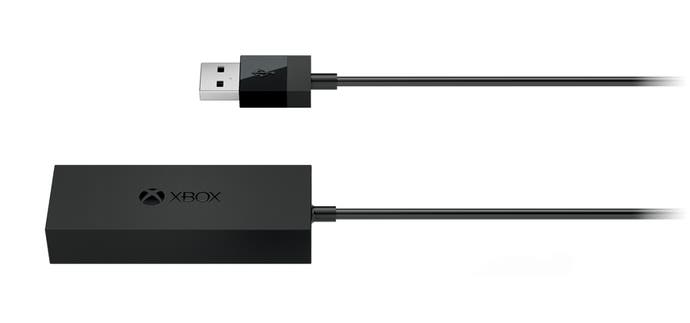
Seagate 2TB Game Drive for Xbox One - the Digital Foundry verdict
We've previously revealed that for PlayStation 4, there can be performance advantages in upgrading to faster drives, but by and large, any hard drive upgrade should target price per gig over variable - and mostly unnoticeable - loading time or texture streaming improvements. It's the same situation on Xbox One, but with even fewer convincing arguments for choosing a performance option. It's all about getting as many gigs as possible at the lowest price-point possible - and that presents issues in recommending the Seagate 2TB Game Drive for Xbox.
Put simply, in the UK at least, you're paying a substantial 21.5 per cent price-premium for a drive with Xbox-green plastics that otherwise performs identically to an existing Seagate product using identical core innards. It should be stated for the record that in addition to the revised plastics, there is also improved packaging plus a 14-day trial code for Xbox Live Gold. But the bottom line is that the saving you'll make buying the standard Seagate drive over the branded model is just a couple of pounds short of the cost of a 12-month Xbox Live gold membership from eBay or via other resellers.
In conclusion, there's nothing fundamentally wrong with the Seagate Game Drive for Xbox - in fact, the ST2000LM003 hard drive contained within is a sterling performer, whether you're running it on console, PC or Mac. Sustained sequential read/writes in the 130MB/s area are possible here - and that's excellent for a 5400rpm hard drive. Settling on this drive for an Xbox One or PS4 mass storage upgrade is actually a very smart move, and it's not as if we haven't recognised the drive's many virtues in the past. Just ensure that you're not spending more than you have to by factoring in the alternative Seagate drives into any potential purchasing decision - unless you really want a bright green, Xbox-branded hard drive.
